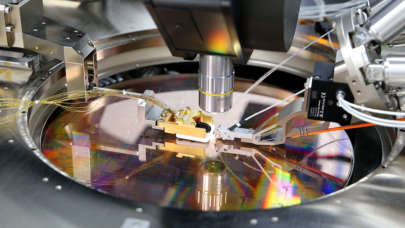LEIPZIG, Germany, June 24 — Adaptive Computing, the company that powers many of the world’s largest private/hybrid cloud and technical computing environments with its Moab optimization and scheduling software, today announced it has combined technologies with HP to deliver greater performance and higher throughput by running Adaptive’s Nitro on HP Apollo Systems. The technology combo of Moab 8.0 and the HP Apollo Systems allows users to achieve even greater power savings due to the new power management capabilities in Moab 8.0 coupled with the HP Apollo ultra low-energy usage. In addition, Adaptive is providing HP Helion Self-Service HPC Solution implementation and management services. Adaptive Computing and HP will be exhibiting at the International Supercomputing Conference (ISC) 2014 from June 22–26, 2014 in Leipzig, Germany in Adaptive’s booth # 710 and HP booth # 350, where these new capabilities will be on display.
“HP and Adaptive Computing have had a long-standing partnership. Our tight integration and relationship allow us to accelerate insights and further deliver on our Big Workflow promise to process intense simulations and data analysis faster, more accurately and most cost effectively,” says Rob Clyde, CEO of Adaptive Computing. “The new developments of HP Apollo and Moab 8.0 help business achieve greater efficiency and performance to speed the time to discovery.”
HP Apollo Family
The HP Apollo family of high-performance computing (HPC) systems are capable of delivering up to four times theperformance of standard rack servers while using less space and energy. The new offerings reset data center expectations by combining an innovative modular design with breakthrough power distribution and cooling techniques. These innovations let the HP Apollo portfolio deliver superior performance and density at a lower total cost of ownership.
HP Apollo builds on HP’s legacy of server leadership and innovation, leading the market in the creation of x86 servers, blade servers and HP Moonshot extreme lower-power, software defined servers. The new HP Apollo portfolio includes the air-cooled HP Apollo 6000 System, which maximizes performance efficiency and makes HPC capabilities accessible to a wide range of enterprise customers. The HP Apollo 8000 System, a supercomputer that combines high levels of processing power with a groundbreaking water-cooling design for ultra-low energy usage.
“HP values its relationship with Adaptive Computing as scheduling and optimization is a key component to maximizing utilization and streamlining the simulation and analysis process,” says Scott Misage, general manager, High Performance Computing, HP. “The combination of HP Apollo and Moab enhance the performance, savings, and abilities of the already highly efficient Apollo Systems.”
Nitro Fuels HP Apollo
Adaptive’s new Nitro advanced high throughput computing delivers 100 times faster job throughput for short computing jobs. Nitro is a localized decision-making tool that enables high-speed throughput on short computing jobs. Capable of running on Moab, Torque and other non-Adaptive environments, Nitro launches 10 jobs per node per second for up to 100x faster throughput, all while reducing latency. This results in greater efficiency when executing short jobs, which are very common for today’s workloads, running for a handful of seconds and requesting few resources. By combining Nitro with the HP Apollo Systems, even greater performance and higher throughput for short computing jobs is achieved in a smaller footprint.
HPC as a Service
Adaptive Computing is participating in the new HP Helion Self-Service HPC solution that empowers organizations to rapidly deliver more competitive products and insights by making high-performance computing (HPC) resources more agile and easier to access via an HPC-optimized private cloud. This new solution provides a self-service portal that enables HPC resources to be used as easily as a familiar application—thereby making them accessible for more staff. The solution also allows HPC to be accessible and manageable for organizations by giving them the choice to manage it themselves or have HP HPC experts implement and manage it for them through a pay-for-use model that lets them stay focused on delivering products and innovation. Adaptive Computing is providing workload scheduling and optimization middleware software for the solution due to its tight integration with HP software and hardware.
Advanced Power Management
Moab 8.0 creates energy cost savings up to 15-30 percent with new clock frequency control and additional power state options. With clock frequency control, administrators can adjust CPU speeds to align with workload processing speeds through job templates. In addition, administrators can manage multiple power states and automatically place compute nodes in new low-power or no-power states (suspend, hibernation and shutdown modes) when nodes are idle. Combining Moab 8.0 with the HP Apollo Systems, energy constraints become more manageable.
About Adaptive Computing
Adaptive Computing powers many of the world’s largest private/hybrid cloud and technical computing environments with its award-winning Moab optimization and scheduling software. Moab enables large enterprises in oil and gas, financial, manufacturing, and research as well as academic and government to perform simulations and analyze Big Data faster, more accurately and most cost effectively with its Technical Computing, Cloud and Big Data solutions for Big Workflow applications. Moab gives users a competitive advantage, inspiring them to develop cancer-curing treatments, discover the origins of the universe, lower energy prices, manufacture better products, improve the economic landscape and pursue game-changing endeavors.
—
Source: Adaptive Computing



























































